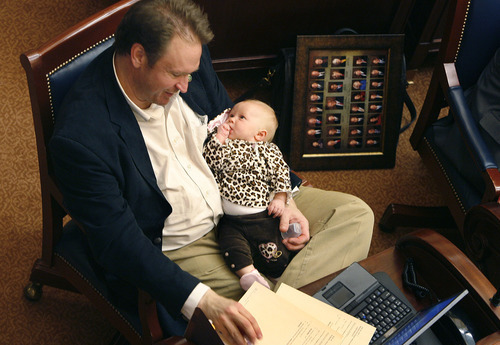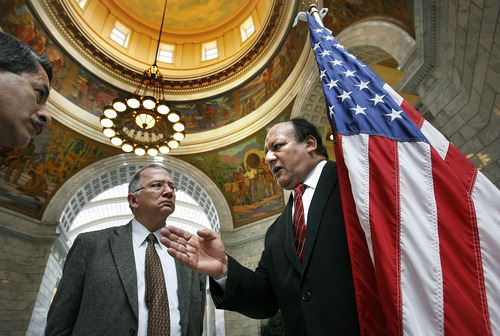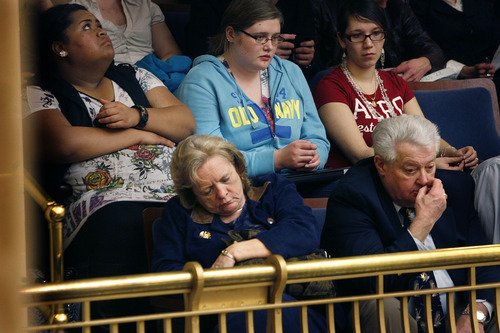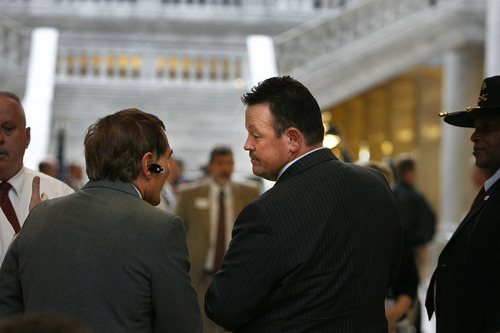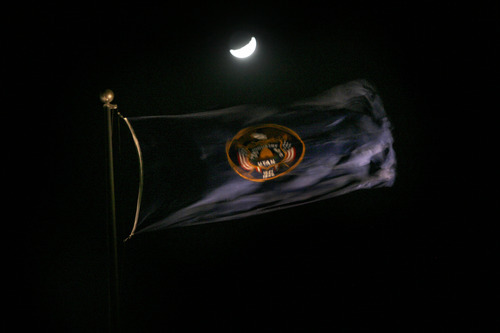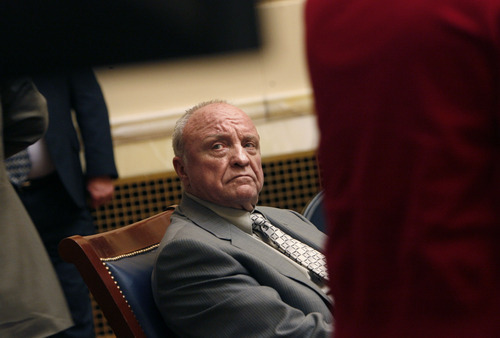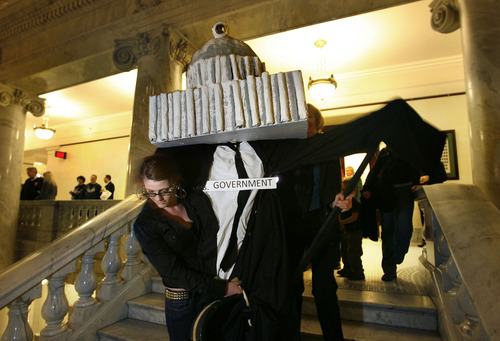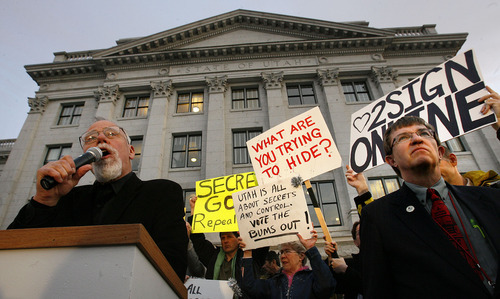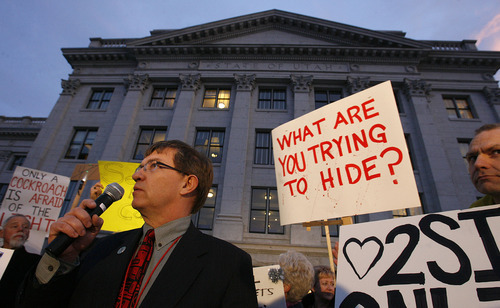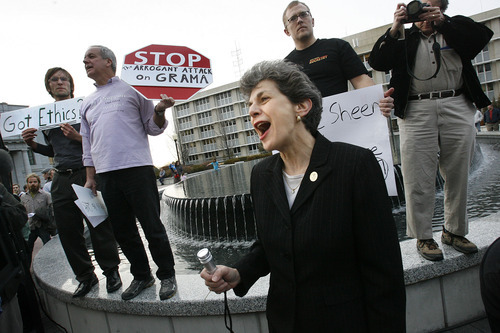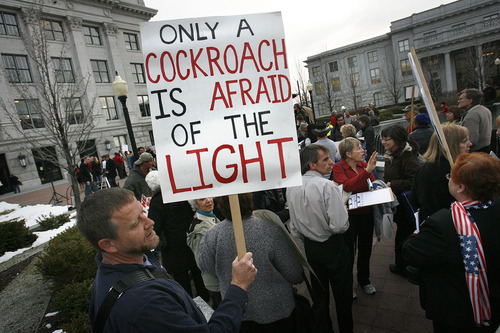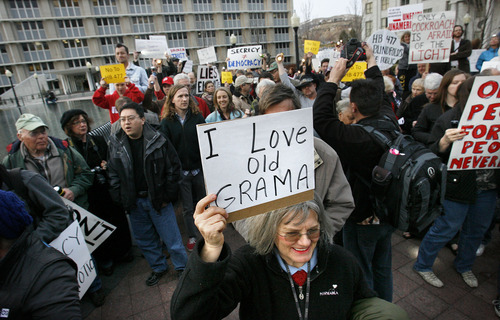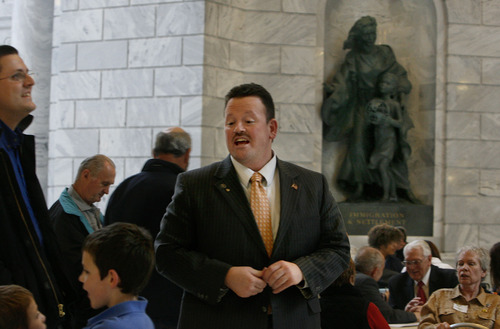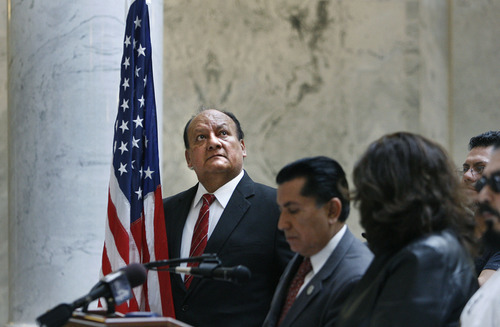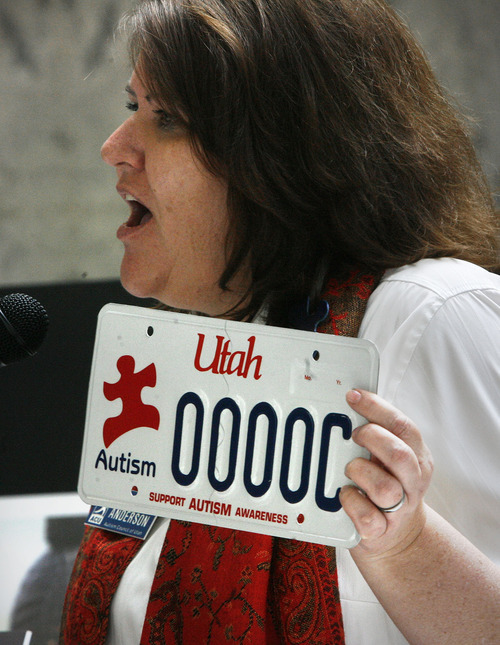This is an archived article that was published on sltrib.com in 2011, and information in the article may be outdated. It is provided only for personal research purposes and may not be reprinted.
With a new speaker at the helm of the House and a cast of new faces, the Utah Legislature wrapped up work Thursday night in a session highlighted by immigration, education reform and feral cats — with most lawmakers and the governor praising its work as largely positive for the state.
Outside the chambers Thursday — and even in the House gallery for a time — groups of angry constituents used the Capitol as a staging ground for protests against immigration reform bills and legislation closing off public access to some state records.
New Republican legislators, swept into office by a flood of activism from tea-party and 9/12 political groups, opened the door to a drastically more conservative Legislature this year.
But House Minority Leader David Litvack, D-Salt Lake City, said that while there is little doubt the Legislature took a step to the right, the body has been "conservative in ideology but moderate in approach."
He points to hot-button issues championed by conservatives that ended up not passing in the House.
Flaming out in the House was a provision to allow adults to carry concealed firearms without concealed-weapons permits or background checks; a bill requiring hotels to allow guns; more than 20 bills targeting states' rights; and other controversial topics, many of which were largely tamped down.
"There is still kind of a moderate approach to government in the state of Utah — that practicality will win out over ideology or philosophy," Litvack said.
Ron Mortensen, an organizer of the Davis County 9/12 Project, sees it differently.
He said tea-party groups focused too much on defeating U.S. Sen. Bob Bennett, R-Utah, last November and didn't vet local candidates enough. The result, he said, is a group of freshmen who have a puzzlingly inconsistent voting record.
"They're all over the board on gun rights, just a lot of issues in there where you can't figure out where they're going on any given issue because they don't have a strong set of principles," he said.
Gov. Gary Herbert said lawmakers accomplished much during the 45-day session.
"I think it's been better than average," he said. "The budget has come together very well, frankly. That's probably going to be an A-minus. There have been some difficult issues they've been willing to tackle, and not everyone's going to be happy with the result, but give them an 'A' for being willing to tackle them and come up with a result."
Lawmakers were bombarded with voter outrage and emotion concerning a handful of issues — immigration reform chief among them — as both sides held rallies and protests and wrote letters and e-mails to lean on them.
The bills the Legislature passed remain so divisive that Herbert's office was still being pummeled by both sides of the debate, demanding he veto the measures.
A bill limiting access to government records flew through the Legislature in fewer than three days, with no notice and little debate.
Herbert had reservations about the bill and struck a deal for the Legislature to recall it and study the issue further. He will call them into a special session in June, he said, to rework the measure.
But the issue that lawmakers received the most angry e-mail about, according to Senate President Michael Waddoups, R-Taylorsville, was a measure sponsored by Rep. Curt Oda, R-Clearfield, that would have exempted the killing of feral cats and other nuisance animals from animal-cruelty statutes.
Oda was the subject of death threats after he suggested the cats could be shot, clubbed or beheaded. The bill was amended to allow feral cats to be killed in rural areas where hunting is legal.
Amid all that, there was a new House speaker, Rep. Becky Lockhart, R-Provo, at the helm after the ouster of former Speaker David Clark.
Lockhart was tested early after it was discovered that one of her key backers, Rep. Craig Frank, R-Cedar Hills, had moved into a new home that he believed was in his district based on a faulty map.
It wasn't, and Frank was forced out of the Legislature.
But Lockhart was praised for being fair and levelheaded throughout and taking the views of her caucus into consideration — although that meant more closed-door sessions than in the past.
Waddoups said there were disagreements — there always are — but the leadership teams were able to work them out amicably.
"I never heard anyone raise their voice in anger this year, no fist-pounding," which he said has occurred in the past.
A handful of budget disputes lingered into the final week of the session, but lawmakers, after having to cut more than $1 billion from the state budget in recent years, had the luxury of being able to add to the roughly $12 billion budget.
Legislators found funding for 14,700 students expected to enroll in Utah public schools next fall and provided $100,000 more to schools than Herbert requested.
"It's almost like we pulled a rabbit out of the hat," said House Majority Whip Greg Hughes, R-Draper, "but we did it." —
OK, lawmakers are done. Now what?
Gov. Gary Herbert gets his turn. He has 20 days — through March 30 — to sign or veto bills, or to allow them to go into effect without his signature. Lawmakers then would have a chance to muster two-thirds majorities to try to override any veto. Failing that, most bills among the hundreds passed will take effect on May 10.
—-
Still want to weigh in? Contact the Governor's Office at 801-538-1000 or email governor@state.ut.us


